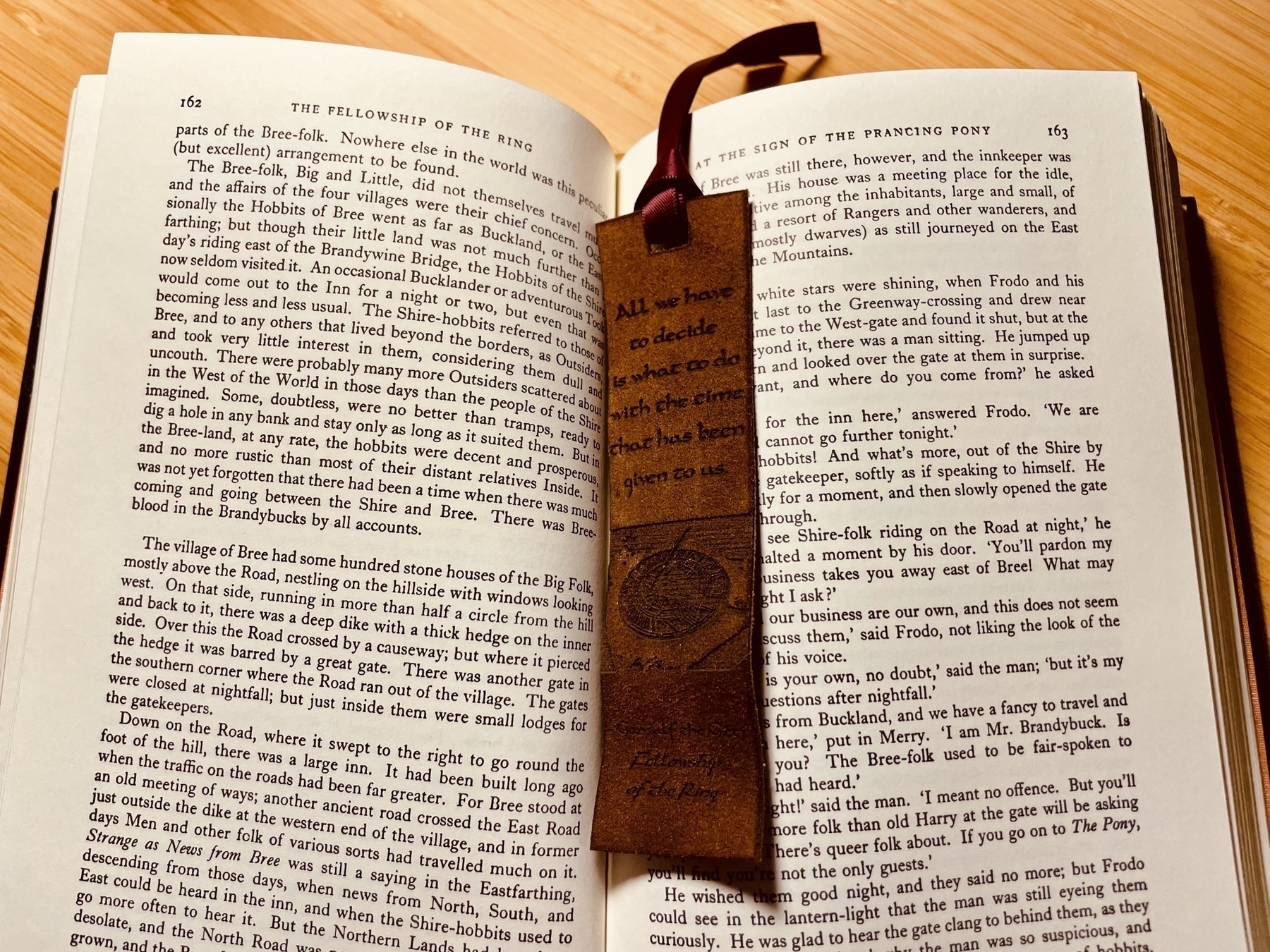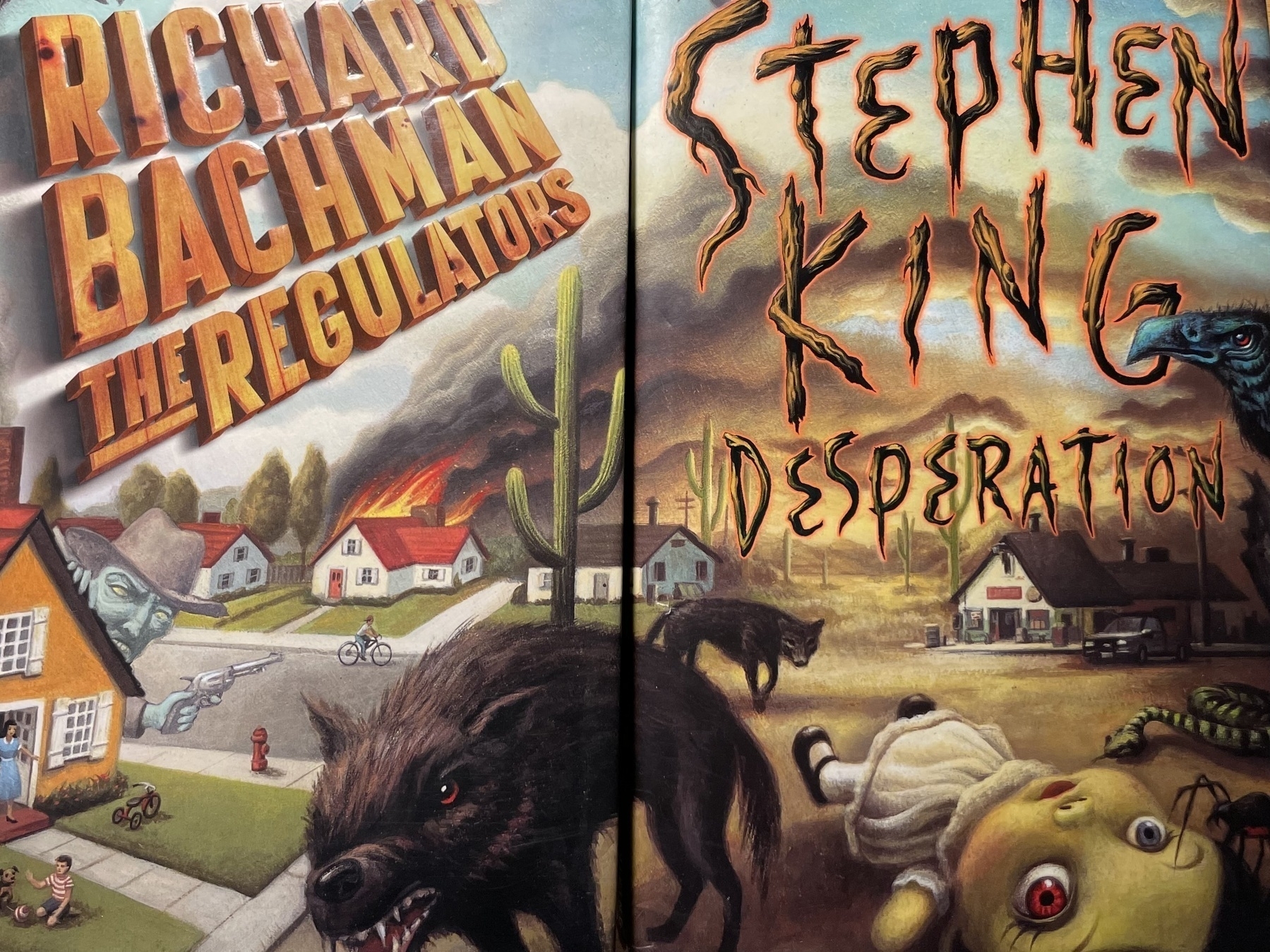
Finished reading: Here is New York by E. B. White
Check out my separate reading blog for an index of book reviews and ratings.

Finished reading: Here is New York by E. B. White

Finished reading: Demon Copperhead by Barbara Kingsolver 📚

Finished reading: Move on Down to Mexico by 📚

Finished reading: Real Tigers by Mick Herron 📚

Currently reading: Demon Copperhead by Barbara Kingsolver 📚

Currently reading: Real Tigers by Mick Herron 📚

Finished reading: You Like It Darker by Stephen King 📚
This is a wonderful collection of short stories and novellas by our generation’s master storyteller. I enjoyed every piece, but particularly liked Rattlesnakes, a sequel of sorts to Cujo. It’s meditation on the persistent grief of losing a child masquerading as ghost story. I’ve read most of Stephen King’s shorter works. This newest one tops them all.

Finished reading: Dead Lions by Mick Herron 📚
My second Slow Horses book and just as good as the first. There were a few more departures in this book frm the TV version, which kept me guessing. Herron is a talented writer.
Currently listening: The Fellowship of the Ring: Being the First Part of The Lord of the Rings by J.R.R. Tolkien 📚
How could it be that my wife of 27 years, a bookworm like me, has never read The Lord of the Rings? We’re heading out on an extended roadtrip in our little RV, and we were struggling to agree on an audiobook for the journey. When I learned she hadn’t read these books, it was easily decided. I can’t think of a better story to complement a cross-country adventure!


Currently reading: Dead Lions by Mick Herron 📚

Finished reading: Remarkably Bright Creatures by Shelby Van Pelt 📚
I enjoyed the setting of the fictional small town on Puget Sound. I liked the premise of the story. I loved the octopus. But, in the end, the author was too young/naive to be inside the head of a grief-stricken 70-year-old woman. It would have been better had she let us imagine what she felt by her actions and words alone. Some big themes were drawn in magic marker when they deserved an artist’s paintbrush. ★★★☆☆

Finished reading: Consolations by David Whyte 📚
Ah, what a treasure. Two to three page poetic essays on 52 commonplace words or themes like Curiousity, Heartbreak, and Forgivness. I’ve been ruminating on this definition of Beauty for the past month:
Beauty is the harvest of presence.
Whyte often shared a take that surprised me, and sometimes changed my very paradigm of a long-fixed, but one-sided belief. I can see spending a year with this book, one theme per week, and digging deep, deep, deep into the purpose of life. This one is a permanent addition to my bedside table. ★★★★★

Currently reading: Remarkably Bright Creatures by Shelby Van Pelt 📚
Finished reading: The Regulators by Richard Bachman/Stephen King 📚★★★☆☆
Continuing my quest to read every Stephen King novel … The Regulators was published on the same day as Desperation. Many of the same characters bedeviled by the same evil spirit Tak, but set in a parallel universe. The book covers of the two novels make up a single scene:


Finished reading: Frankenstein by Mary Shelley 📚
This book was nothing like I expected. Frankenstein (the scientist) is arrogant, self-absorbed, and makes incredibly bad decisions. The story itself is unbelievably far-fetched. There were times I wanted to throw my Kindle on the floor at the dumb-assedness of our unreliable protagonist.
Taken more broadly, it’s a cautionary tale about mankind’s continual push for scientific advancement, which feels more relevant today than ever.
Learn from me, if not by my precepts, at least by my example, how dangerous is the acquirement of knowledge, and how much happier that man is who believes his native town to be the world, than he who aspires to become greater than his nature will allow.
It’s easy to find fault in the style of the writing or the three-level deep epistolary narrative, but this novel arguably created the science fiction genre while delivering a warning about the unbridled use of science and technology … in 1831.
And get this: Mary Shelley was a teenager when wrote Frankenstein. A teenager!

Currently reading: Frankenstein by Mary Shelley 📚
Slow to post this, but I’m doing a group read of this classic on BlueSky (#hotfranksummer).

Currently reading: The Regulators by Richard Bachman 📚

Finished reading: David Copperfield by Charles Dickens 📚
I had an idea that this was a story about the trials of an orphan in Dickensian London. It was about that, but so much more. This novel has warmth and sadness and joy and despair. Characters that will stick with me for a long, long time. I’m reluctant to part with them to be honest. Dickens truly was a one-of-a-kind master storyteller. ★★★★★

Currently reading: The Age of Reason Begins by Will Durant 📚
One of the great diseases of this age is the multitude of books that doth so overcharge the world that it is not able to digest the abundance of idle matter that is every day hatched and brought into the world.
Barnaby Rich, known primarily for his Elizabethan short stories, wrote this in the year 1600. I wonder what Barnaby would think of our always-connected and ever-distracted present day?
Thursday, May 30, 2024 • 1 min read
Interesting and humorous article by Anthony Lane in the New Yorker about the book summary app Blinkist: Can You Read a Book in a Quarter of an Hour?. We’re reading fewer books as a society. Our ever-fascinating smart phones aren’t helping the cause:
The most potent enemy of reading, it goes without saying, is the small, flat box that you carry in your pocket. In terms of addictive properties, it might as well be stuffed with meth.
— Anthony Lane
I’m a fan of watching the TED Talk before I decide to tackle a non-fiction book, but reading a 20-minute book summary of Proust’s In Search of Lost Time? No, no, no, no.

Finished reading: 84, Charing Cross Road by Helene Hanff 📚
I know I’ve read this a long time ago, but it was nice to be reacquainted with Helene, the zany book-loving American, and Mr. Frank Doel, the reserved British bookseller. The abrupt ending catches you off guard, but it’s also perfect. ★★★★☆
The Booksellers documentary is so, so good. All the bookshelves, rare books, home libraries … and so many kindred spirits talking about their love of books. The whole documentary is beautiful and a little melancholy. Booksellers and librarians are my favorite people. Watch it on Amazon Prime.

Finished reading: Stories of Books and Libraries by Jane Holloway (ed.) 📚
A book of short stories, excerpts and essays about the love of reading and libraries? Of course I’m going to love it. A good father’s day gift for a dad who loves books. ★★★★★
Saturday, May 4, 2024 • 1 min read

I’m currently reading the classic David Copperfield by Charles Dickens 📚 for the first time. I’m reading it on my Kindle with an add-on $3 splurge of the Audible audiobook. I experimented with WhisperSync many years ago when it was first released and found it buggy. For such a low fee, I thought I would give it another try.
I went from reading last night on my Kindle to listening this morning in the car, to reading again in a waiting room, to listening once more as I did chores. Never once did I lose my place.
I have a love-hate relationship with ebooks and Amazon, but wow — what an immersive, magical reading/listening experience. How did I not know this worked as well as it does?

Currently reading: David Copperfield by Charles Dickens 📚

Finished reading: The Death of Grass by John Christopher 📚
A short 1950s SciFi novel about a virus that kills grasses. Starvation and violence breaks out. Governments fall. Civilization crumbles. Except for the very dated portrayal of women, the story felt current. ★★★★☆

Finished reading: The Reformation by Will Durant 📚

Currently reading: The Death of Grass by John Christopher 📚

Finished reading: To the Lighthouse by Virginia Woolf 📚
An absolute masterpiece. Totally gutted by the end. I can’t believe it took me this long to read it. ★★★★★

Finished reading: Sibley’s Birding Basics by David Allen Sibley 📚
Ah, the inevitable slide into birdwatching. Great introductory guide to help me get started. ★★★★☆